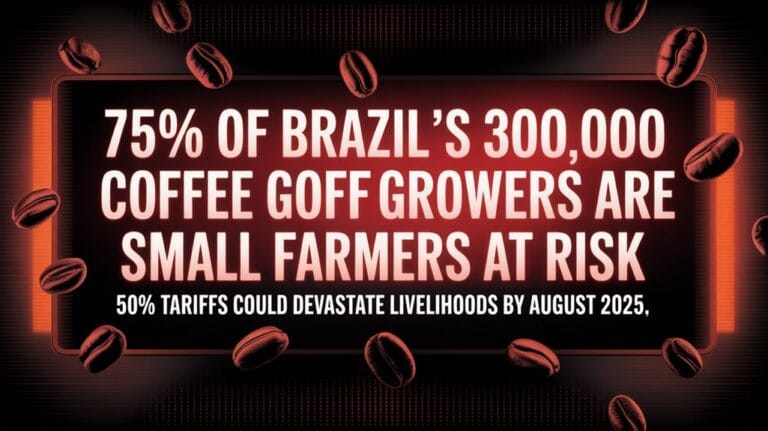With the U.S. set to impose 50% tariffs on Brazilian imports next August, Brazil has warned its decades-old trade deal with America could collapse. The tariffs, announced by President Donald Trump in a letter to Brazil’s President Luiz Inácio Lula da Silva, target all Brazilian exports starting August 1, 2025. U.S. officials linked the move to judicial concerns, calling it a response to alleged unfair trade practices.
U.S. plans 50% tariffs on Brazilian imports by 2025, threatening a historic trade pact amid claims of unfair practices by Trump.
But Brazil sees the measure as punitive, tied to pressure over unspecified investigations. Trade negotiations have stalled amid diplomatic tensions, with Brazil calling for urgent talks to avoid a breakdown.
Brazilian officials warn the tariffs could wreck a trade relationship spanning over a century. Agriculture Secretary Ferrera highlighted the need for joint negotiations to resolve the impasse without further economic harm. They say the levies threaten key sectors like coffee, Brazil’s top export, where 300,000 growers—75% small farmers—risk losing income. Higher costs could make Brazilian goods less competitive in the U.S., hurting trade balances.
Other industries, from sugar to beef, also face pressure. U.S. consumers may pay more for Brazilian coffee, which they buy more than any other country. The EU’s preparation of €93bn countermeasures against similar U.S. tariffs highlights the global ripple effects of protectionist policies. Importers might scramble for new suppliers, risking supply chain chaos. Experts warn the tariffs might backfire, harming U.S. consumers and businesses.
The dispute has deepened political friction. Brazil sees the tariffs as a political move, not an economic one, clashing with global trade trends. Diplomatic tensions flared as Brazil linked the tariffs to ongoing U.S. investigations into its trade policies.
Trump’s administration launched a probe shortly before announcing the tariffs, calling it a routine review. Brazilian leaders insist they’re open to dialogue but say the August 1 deadline leaves little time.
If the tariffs take effect, Brazil could retaliate, risking broader trade wars. Both nations face economic fallout, but Brazil’s fragile export sectors stand to lose most. Markets are watching closely as the clock ticks toward August, with neither side showing signs of backing down.
The stakes are high: a collapsed deal could reshape trade between the Americas’ two largest economies for years.





